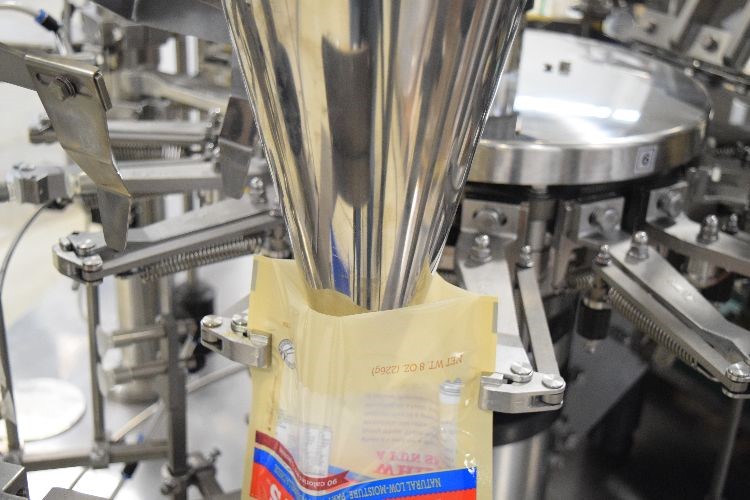Checkweigher manufacturers provide a measuring instrument for your packaging needs. They’re a vital part of any production line, helping to ensure your products are within their specified weight limits and preventing faulty or unfit products from making it to the shelf.
Page Contents
Consistent Product Quality
They also improve productivity by speeding up processes and automatically removing problems from the production line. This results in great ROI and a more consistent product quality.
Variety of Raw Materials
A multihead weigher is an essential part of many production lines, enabling you to weigh and sort a wide variety of raw materials to meet the required specifications of your end products. Finding the right one means weighing up multiple factors, including accuracy, compatibility, productivity and total cost of ownership.
A specialised machine, it works by taking a bulk product (usually your raw materials) and splitting it into smaller volumes, based on pre-defined limits that you programme into the software.
Top Cone & Feed Pans
The product then passes through a top cone and feed pans, which are designed to distribute the product into the weigh buckets, each of which has a load cell that constantly monitors how much is contained. These are then opened and weighed by a computer, which determines the product’s combination of weights across the hoppers. This enables the product to fall into distribution systems or bagmakers via discharge chutes.
Essential Part of Packaging Production
Checkweigher manufacturers are an essential part of packaging production, ensuring products meet their target weight. They are used by a variety of industries, including food and beverage packaging, pharmaceuticals and cosmetics.
Compromising Quality
A typical checkweigher is a weighing system that accepts product off a conveyor and rejects it based on preset weight zones. They are available in many models and can be integrated with other inspection systems to increase production efficiency without compromising quality.
Ovens or Refrigerators
They operate at high speeds, processing products weighing fractions of a gram at over 100m/m (meters per minute) and materials such as pharmaceuticals and 200 lb bags of produce at over 100fpm(feet per minute). These scales are designed in many shapes and sizes, hung from ceilings, raised on mezzanines and operated in ovens or refrigerators.
Stand-Alone System
Conveyor scales feature a load cell and a control computer to capture and transmit the deformation of the cell to a monitor. They send weight data to peripheral devices such as printers or weigh price labelers and can be a stand-alone system or part of a larger machine.
Floor or bench checkweighers, also known as checkweighing scales, offer the ability to determine if a product is within a specific weight range. They usually display a visual indicator such as flashing red or green to indicate whether the item is in or outside of the set limits.
Large Number of Ingredients
They can be used in a number of different applications, including packaging for a wide variety of products and foods. They are especially useful in situations where a large number of ingredients are packed together.
Using a static checkweigher on a production line can help ensure that the quality of your products is not affected by any inconsistencies or inaccuracies in the weighing process. It can also be used to monitor small changes in product weight as it passes through the line.
Crucial Part of Quality Control
A checkweigher is a measuring instrument that checks the weight of your packaging to ensure it meets the minimum requirements. It is a crucial part of quality control on production lines.
Pneumatic Pusher Arms or Air-Jets
Static checkweighers weigh items that are not moving, while Dynamic checkweighers or In-Motion Checkweighers weigh products as they pass along a line and dispose of off-weight products with automated removal devices like pneumatic pusher arms or air-jets.
The type of checkweigher you choose will depend on your application needs and the environment in which you operate. For instance, if you are in an environment that is wet or damp then your scale needs to be watertight and able to stand up to the elements.
Conclusion:
Checkweigher manufacturers offer a range of portable and general purpose scales, which are designed for use in wet environments such as food processing and meat & fish markets. It is washdown, corrosion free and offers rapid indication of over, under or acceptable weight.

Leave a Reply